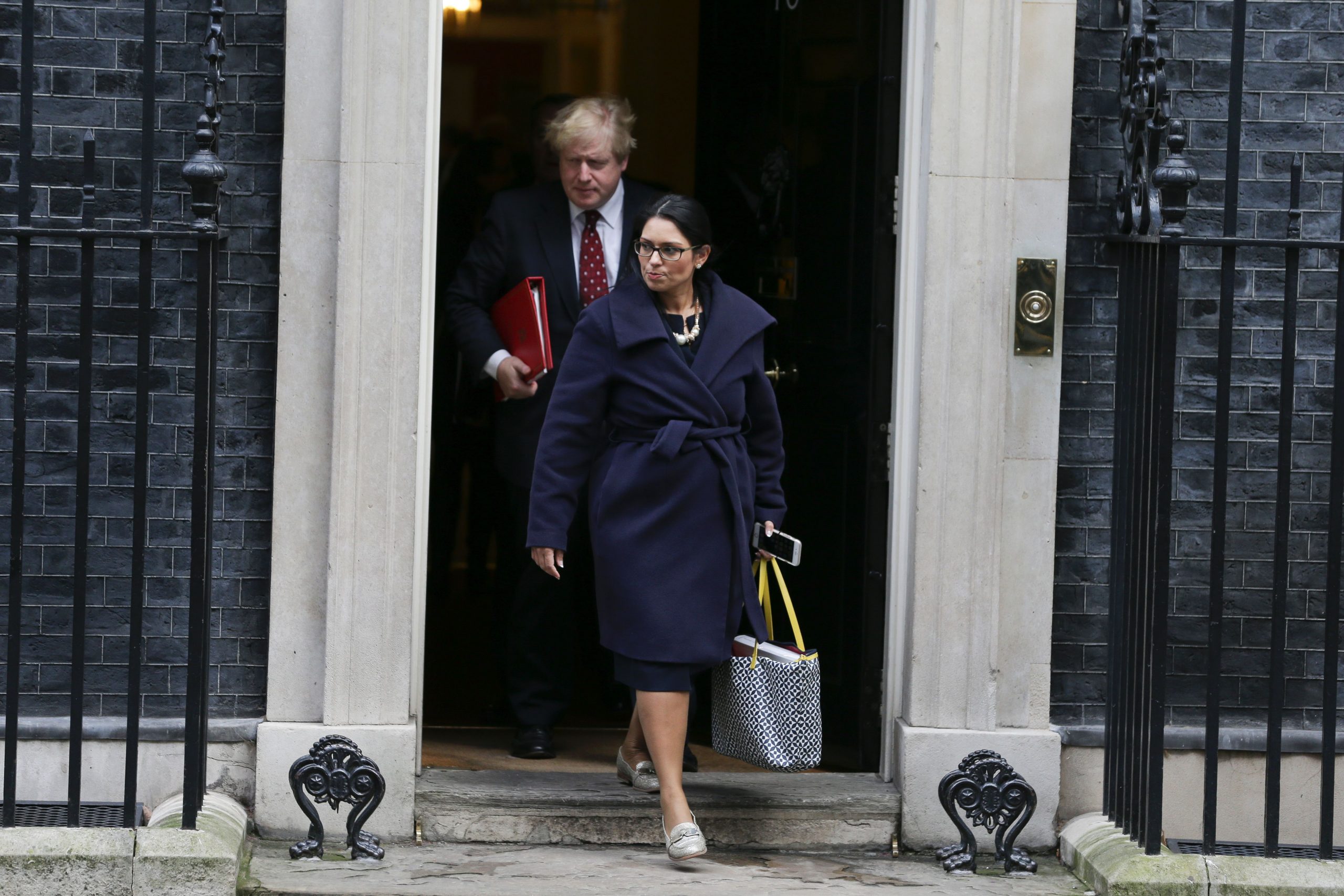
On Brexit, the Government has no wiggle room left
In the three speeches Johnson has given since his election as Conservative leader, he has restated several unambiguous commitments on Brexit: to leaving on 31 October, to leaving with no deal if necessary, and to completely abolishing the Irish backstop — without which Dublin and as such Brussels won’t agree to a negotiated withdrawal.
Optimists on the Tory benches believed Johnson would interpret his enormous mandate from the Conservative membership as a licence to compromise. Given how the first days of his premiership have unfolded, there can be no doubt now that they were wrong.
That not only leaves Johnson with no room for manoeuvre, but those on the Tory backbenches who want to stop no-deal too.
Johnson is daring the EU to blink first
One of the most striking lines in Johnson’s speech on the steps of Downing Street yesterday was his warning that no-deal would only happen “if Brussels refused to negotiate”.
His pre-emptive blaming of the EU for a no-deal scenario continued at the despatch box, when he said that Steve Barclay, the Brexit Secretary, was prepared to enter talks on an alternative arrangements to the backstop at any time.
He also offered EU nationals an absolute and unconditional right to remain in any Brexit scenario, which is rather further than Theresa May ever went. (And, indeed, further than Johnson was willing to go himself as a leadership candidate.)
Johnson’s gambit on no-deal is, as he sees it, as much about wringing concessions from Brussels if anything else. But if they are not forthcoming – as is likely – lines like this are intended as a way to write the government’s defence in advance. Or, when it comes to an election, its attack.
Like Vote Leave, Johnson has his eye on Labour voters…
Much of Johnson’s rhetoric and policy material have been lifted directly from Vote Leave’s playbook – the authors of which are now in government.
As with his speech on the steps on Downing Street, he sketched out a series of spending pledges on law and order, infrastructure and health. He also reprised its signature position on migration: an Australian-style points system.
Those in search of detail were disappointed. But those pledges, of course, were campaign positions rather than policies for government – and it may well be more sensible to judge Johnson’s administration, which is likely to go to the country before 2022, by the same criteria.
The Shadow Treasury team, for what it’s worth, aren’t particularly worried by Johnson’s flirtation with a more expansionary fiscal policy – they simply intend to “bank” whatever he pledges and promise more.
…and Labour have an eye on their own
Responding to Johnson, Jeremy Corbyn continued a habit he has developed since the European Elections – slipping a criticism of the Liberal Democrats into his attacks on Tory austerity.
Similarly, when clarifying that Labour would likely vote against any new Brexit accord brought back before Parliament by Johnson, he restated the party’s new policy – that it would campaign for remain against it.
These are the lines that Labour think will stem the tide of support to Jo Swinson, especially the longer Johnson spends in office. As yet there is little evidence that they are working.
The government has a Priti Patel problem
Everyone with a pulse has by now heard the following about the new Home Secretary: she is on the record as supporting to reintroduction of hanging, a position she has since pulled back from but is still dogged by.
She was one of a handful of Cabinet ministers singled out for criticism by Corbyn, who challenged Johnson to rule out bringing back capital punishment (something that he was more than happy to do).
As much as it increasingly feels like Johnson and his party have given up on trying to rescue their standing among social liberals, appointments like this will not help. Expect them to have plenty of viral cut-through.
The Conservative calculation, of course, will be that it makes up enough support among Leave voters – including the substantial minority of those who are BAME – to make up for the slippage.






